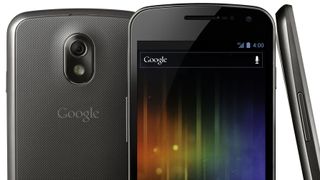Samsung Galaxy Nexus lands on Sprint
With Google Wallet and the promise of 4G LTE

Samsung's popular Galaxy Nexus finally landed on Sprint, though not without complications.
The Galaxy Nexus is currently the flagship device for Google's Android 4.0 OS, or Ice Cream Sandwich, which we called "savvy, futuristic and both competent and confident."
The Sprint version doesn't bring too many new features to the table. And, those hoping to take advantage of the phone's fast 4G LTE network capabilities will have to wait a while.
Rolling out 4G LTE for the Galaxy Nexus
Sprint is in the process of converting to the newer, quicker 4G LTE network. However, until the transition is complete, Samsung Galaxy Nexus users will have to settle for 3G speeds.
And that could take a while - Sprint will reportedly roll out LTE support in 10 cities, including Dallas, San Antonio, Houston, and Atlanta, by the end of June.
Even then, Galaxy Nexus owners - as well as owners of Sprint's other 4G LTE-compatible phones, the LG Viper (also released yesterday) and the unreleased HTC Evo 4G LTE - will be out of luck unless they live in one of the 10 LTE-ready cities.
This places Sprint users at a considerable disadvantage, as AT&T and Verizon are already well on their way to making 4G LTE the standard on their own devices.
Get daily insight, inspiration and deals in your inbox
Get the hottest deals available in your inbox plus news, reviews, opinion, analysis and more from the TechRadar team.
Padding your Google Wallet
Perhaps to make up for the initial lack of 4G network speeds, Sprint is granting $10 in funds to Samsung Galaxy Nexus adopters who sign up for Google Wallet - an app that's not even available on Verizon phones - within a week of activating their phones.
Google Wallet allows users to insta-pay at any retail location that accepts MasterCard PayPass devices.
Google will give users an additional $40 three weeks after they sign up, making for a total of $50 in free digital money.
Samsung's shooting star
A patent suit from Apple hasn't stopped the Samsung Galaxy Nexus from becoming one of the top-selling phones on Amazon.
And, it's doubtful even limited 4G LTE coverage (at least initially) will be sufficient to sour users' experience with Sprint's version of the Ice Cream Sandwich device.
The only thing that may hamper the Galaxy Nexus' success is its stiff competition.
It was first released in 2011, and the LG Viper and HTC Evo 4G LTE, though similarly limited when it comes to LTE coverage, at least boast newer hardware.
Michael Rougeau is a former freelance news writer for TechRadar. Studying at Goldsmiths, University of London, and Northeastern University, Michael has bylines at Kotaku, 1UP, G4, Complex Magazine, Digital Trends, GamesRadar, GameSpot, IFC, Animal New York, @Gamer, Inside the Magic, Comic Book Resources, Zap2It, TabTimes, GameZone, Cheat Code Central, Gameshark, Gameranx, The Industry, Debonair Mag, Kombo, and others.
Micheal also spent time as the Games Editor for Playboy.com, and was the managing editor at GameSpot before becoming an Animal Care Manager for Wags and Walks.

